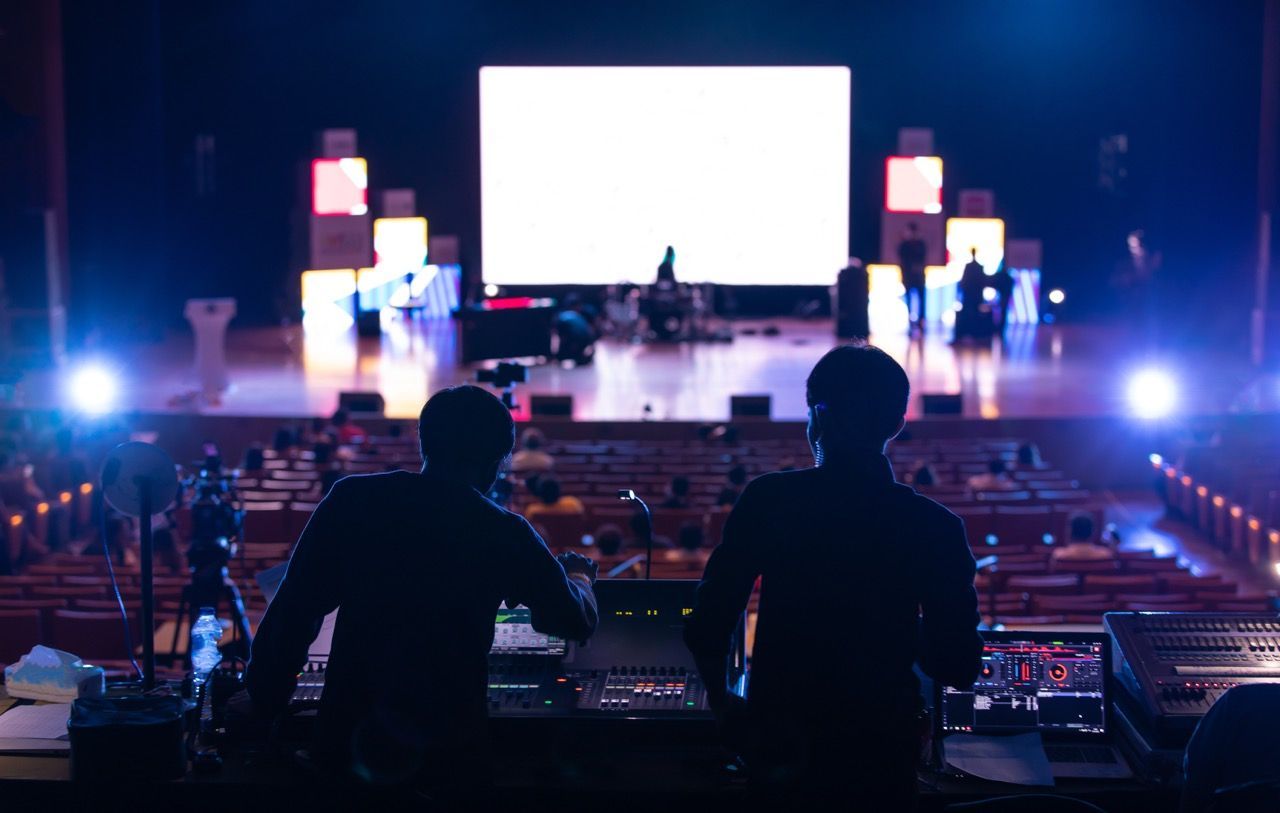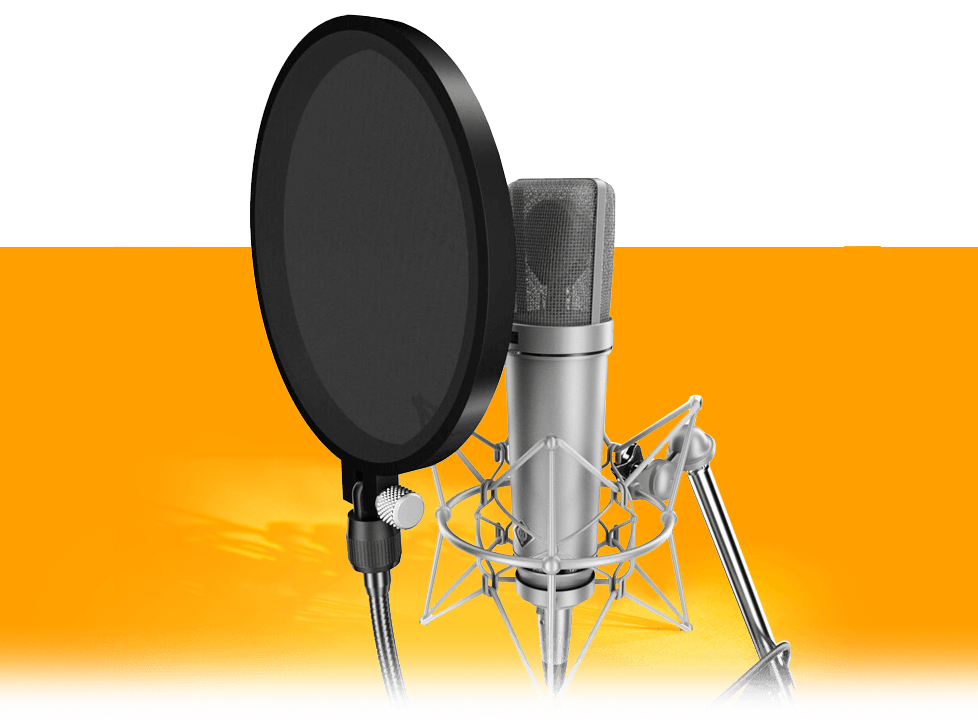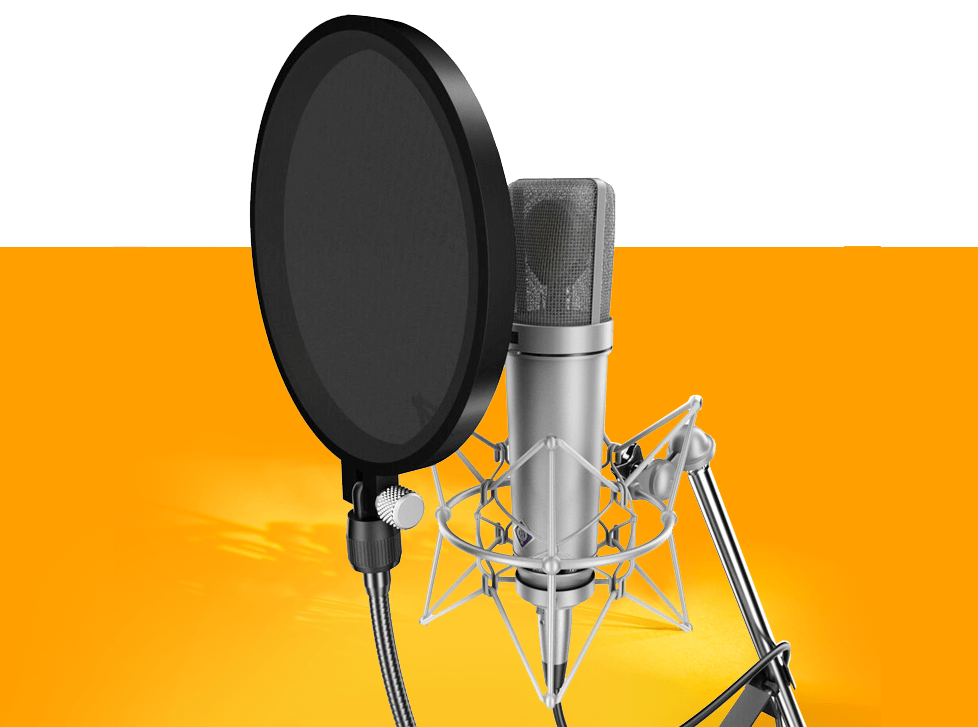The Thrilling World of Live Sound Engineering
Jeremy Alves | November 3, 2024

Live performances and events may focus on the headlining artist or keynote speakers, but a team of engineers, producers, and technicians makes every live event possible. A sound engineer designs the entire sound system based on the venue’s acoustics and the performance's goals.
Conferences, sold-out stadium shows, and exclusive acoustic sets all require sound engineers to capture and broadcast high-quality audio without issue. However, sound engineers need to quickly find solutions and deploy fixes if (or when) issues appear.
Studio producers or engineers often migrate to live sound due to the real-time feedback of a crowd, the fulfillment of a great event, or even seeking out new challenges. Many of the same principles will carry over, but live sound also requires a unique skill set.
Working in live sound can be a highly fulfilling career, and skilled
live sound engineers are in demand across a wide range of industries. So, keep reading to learn more about live sound engineering and how live sound schools can help begin or advance your career.
What is Live Sound Engineering?
Live sound engineering is the specialty of managing and manipulating audio signals during live events such as concerts, theatre productions, corporate meetings, and sports events.
Unlike studio sound engineering, which focuses on recording music, live sound is an art performed in real-time, where precision and adaptability are critical to success. Any issues that emerge need to be quickly addressed before they make a negative impact on the event.
Live sound engineers work with complex audio systems, including microphones, amplifiers, mixing consoles, and loudspeakers, to create a high-quality listening experience. A few typical responsibilities include setting up and testing audio equipment, mixing sound for the audience and performers, and troubleshooting technical issues during the event.
The Importance of Live Sound Engineering Programs
The quality of sound can make or break a live event. Even the most talented performer will struggle to connect with an audience if the audio is muffled, distorted, or imbalanced. Beyond entertainment, live sound is critical in conferences, religious services, and any other event where capturing and broadcasting audio is necessary.
Live sound engineers play a pivotal role in ensuring every sound element is clear, precise, and impactful. Skilled sound engineering enhances the emotional connection between the performer and the audience. Although it might come as a surprise, safety is a major component of any event you might attend as an eventgoer. As a sound technician, learning how to set up equipment only goes so far unless it’s done correctly and safely. Rigging includes a significant amount of math and knowledge of engineering principles that are taught at OIART.
Additionally, audio engineers need to tailor the audio to match the venue's acoustics and the performance’s energy, whether it’s for intimate acoustic sets or stadium rock concerts. Studio engineers will likely need to learn more about how sound travels through venues on top of how to work with existing venue equipment. Understanding amplitude restrictions, loudness and how to set up a system that could otherwise cause permanent hearing damage for listeners doesn’t come as a guess for the technicians working any show. The volume and setting the sound systems need to be calibrated effectively with precision and accuracy at every venue. These skill sets take a lot of acoustic training.
Live sound engineering courses teach both the fundamental knowledge and hands-on skills required for working in the field, as well as the importance of safety. Even though current producers will certainly understand many of the principles, training is still necessary when moving to live audio.
The Excitement of Transitioning from Studio to Stage
Working in live sound engineering is exciting, challenging, and highly rewarding. For some, this blend of fast-paced action is exactly what they want from the next step in their career. Live events allow engineers to engage with performers and audiences and watch how they react — making it a highly fulfilling experience.
Many live sound engineers began their careers in studio environments where they learned the technical foundations of audio production, then moved to live sound for a variety of reasons.
Transitioning to live sound introduces entirely new challenges and requires new skills, such as real-time problem-solving and adapting to unpredictable conditions. Attending a live sound engineering course requires new skills and problem-solving techniques, making them well worth it even for working producers.
OIART's Audio Program Includes:
✓ Small Class Sizes
✓ On Site Facilities
✓ Industry Leading Instructors
✓ Post Grad Support & Guidance
✓ Exclusive 11 Month Program
The Challenges and Thrills of Working in Live Sound
Live sound engineering is as challenging as it is rewarding. Fortunately, for the right person, these challenges are offset by the adrenaline rush of live events and the satisfaction of delivering perfect sound.
You’ll work in a high-pressure environment while witnessing the audience's enjoyment — creating an unmatched sense of accomplishment. So, let’s break down a few of the challenges you can expect to encounter throughout your career.
Venue Acoustics
Every venue is unique, from echo-prone arenas to tightly packed clubs, requiring engineers to adapt on the fly. Live sound engineers will evaluate several aspects of the venue ahead of time to design a sound system that provides a high-quality experience to everyone in attendance.
During the event, engineers manage the audio setup, mix in real-time, and solve any problems that seem to always emerge. After the event, they’ll review the results and help break down the setup.
Typically, the lead engineer makes the major decisions, while sound technicians will execute those decisions. Engineers will create the design for the event, while technicians will handle setting up and wiring all the components involved.
Equipment Failures
A malfunctioning microphone or speaker can disrupt a performance, which requires quick thinking and technical expertise to resolve. Sound engineers and technicians work together to find and implement solutions for any issues as quickly as possible — the show must go on.
For example, if a microphone suddenly goes off, it’s the technicians who connect a new one and run it out to the performer. The engineer won’t likely need to weigh in on that decision, but if a mixing board suddenly fails, the engineer may need to get creative to find solutions.
Performer Preferences
Artists often have specific audio preferences, and engineers must balance their requests with the audience’s needs. There won't always be a discrepancy between preferences and what’s needed for the show, but it will likely happen sometimes.
Whether a vocalist wants a specific type of mic or a musician has an unusual request, you’ll need to try to accommodate them while still putting on an amazing show.
Audio engineering programs equip you with a well-rounded understanding of live sound engineering. If one component needs to change, you’ll be ready to keep performers happy and ensure the audience has an amazing experience.
Why Formal Training is Essential for Live Sound Engineers
While passion and hands-on experience are crucial, formal training from audio engineer schools is the cornerstone of a successful career in live sound engineering. Sound engineers need a solid foundation in audio principles well beyond working in a DAW, including the following:
- Acoustics and sound wave behaviour
- Signal flow and processing
- Working with digital and analog signals
- Equipment operation and maintenance
- Rigging and Safety
Sound engineering programs provide structured learning environments where students can practice with professional-grade equipment. These programs also cover industry best practices, from safety protocols to effective communication with performers and crew members.
Career Opportunities in Live Sound Engineering
Live sound engineering courses give you practical skills, hands-on experience, and connections to help find employment. Once complete, you’ll have valuable credentials that showcase your expertise to build your new career. A few career options in live sound engineering are:
- Concerts and touring: Experts in mixing audio for live music events and managing sound on the road are almost always needed. The fast pace of touring can be stressful, but it can be even more rewarding when you help the artist provide meaningful experiences.
- Theatre and performing arts: From Broadway to your hometown productions, engineers are critical for performing arts. Engineers ensure musicals, dance performances, and plays have clear and dynamic sound for everyone in attendance.
- Corporate events: Even corporate events can be challenging and rewarding. With these events, sound engineers ensure high-quality audio for conferences, product launches, and trade shows.
- Broadcast and streaming: Live sound engineers are always in demand for any live shows, including TV broadcasts, live streams, and online events. You’ll need to learn how to design and operate audio setups that provide a high-quality audio experience.
Each of these roles requires unique skills, but they all share the excitement of working in fast-paced, creative environments. You’ll need the right blend of training, experience, and temperament to build a lasting career in live sound, and live sound schools can make it happen.
Take the First Step to the Stage with OIART
Live sound engineering is more than a career—it’s a thrilling journey that combines technical expertise, creative expression, and the power to create unforgettable experiences.
For the right person, it can be an exciting, long-term career that allows you to provide memorable experiences while continually pushing your skills. You’ll be able to expand your skills throughout your career while also moving into your chosen industry.
Sound engineers are the backbone of live entertainment, ensuring every event resonates with its audience, from small gigs to global tours. However, becoming a live sound engineer without formal training is difficult, even if you’re currently a studio producer.
Attending a live sound engineering course prepares you to work in this dynamic and challenging field. Working producers will certainly have a head start, but learning from experienced instructors is critical to building lasting success.
Ontario Institute of Audio Recording Technology (OIART) offers industry-leading training that teaches the knowledge, theories, and hands-on skills you’ll need to thrive.
Learn more about our live sound program today to start creating unforgettable live events.
Ready to Start?
OIART's Audio Program Includes:
✓ Small Class Sizes
✓ On Site Facilities
✓ Industry Leading Instructors
✓ Post Grad Support & Guidance
✓ Exclusive 11 Month Program
Top Reasons Why You Should Choose OIART.
Have Questions?
If you have questions about our audio engineering and music production program or would like to book a tour, we would be pleased to speak with you.
Text Us: 519.200.4151
Share This With a Fellow Music Lover
Apply in 4 Steps!
Step 1: Click apply now.
Step 2: Answer 8 questions about yourself.
Step 3: Upload supporting documents.
Step 4: That's it! You are done.
Share this with fellow music lovers


